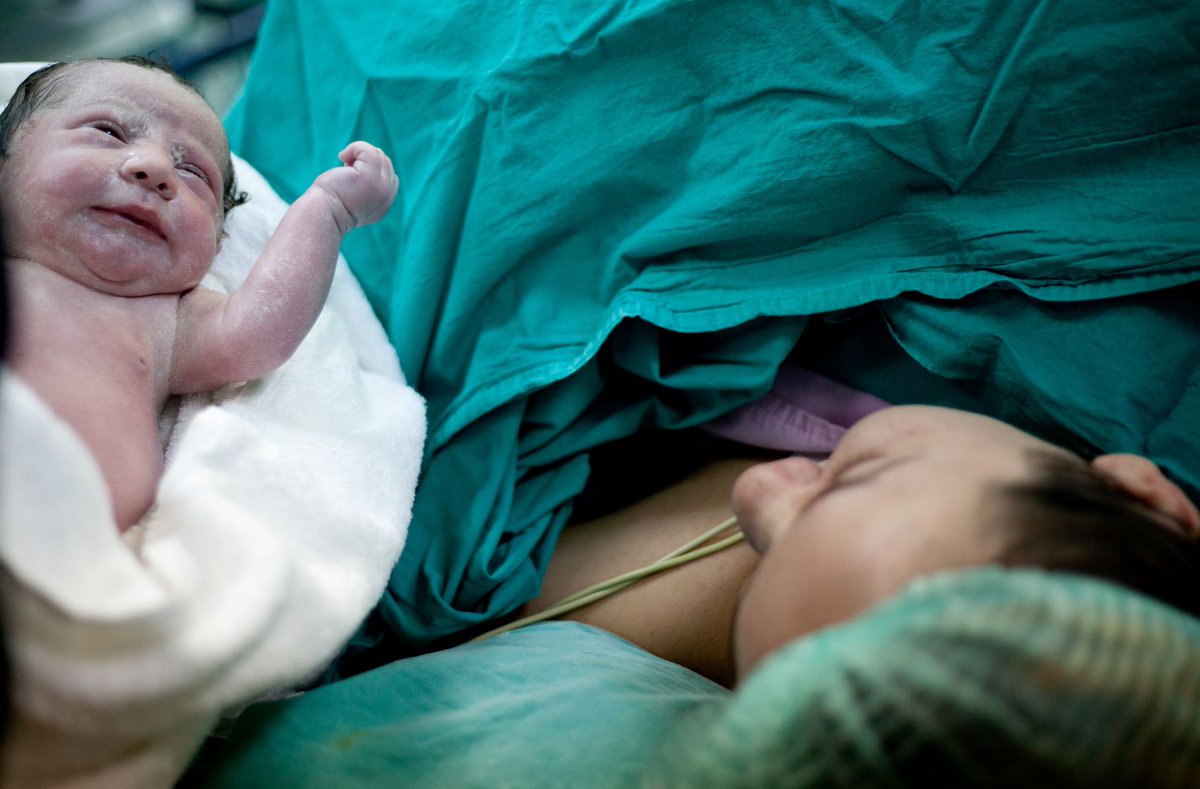
We profile Luciana Gouveia & her impact story as part of our 25th anniversary celebrations. Read thread👇 on how Luciana & team used the JBI approach to implementation to improve mothers’ experience of childbirth through evidence-based intrapartum care.
#WeAreJBI
#WeAreJBI

Abuse & disrespect in childbirth care has been deemed a public health issue in Brazil. Many studies have documented the prevalence of discriminatory & hostile attitudes in childbirth care.
Only 5.6% of Brazilian women have normal births without inappropriate & excessive invasive (often not informed or consented to) interventions during vaginal birth, eg the Kristeller manoeuvre, often leading to poor obstetric outcomes.
Luciana Magnoni Reberte Gouveia is a professor in the Department of Maternal-Infant & Psychiatric Nursing, at the University of Sao Paulo School of Nursing. 

The midwifery & nursing professionals, residents & students at the obstetric centre of the teaching hospital where Luciana taught were dissatisfied with the care they were providing to women in labour.
‘Women must be the protagonist of their own birth experience, & the teaching & learning process should take place in a respectful environment for mothers & babies’, says Luciana 

Luciana used the JBI PACES audit & feedback tool to conduct a baseline clinical audit measuring 20 evidence-based criteria for best practice intrapartum care.
She then applied the Getting Research into Practice (GRiP) approach to: evaluate baseline audit findings; identify barriers & enablers to evidence utilisation; and develop & implement strategies for change.
Initiatives introduced as part of Luciana’s evidence implementation project included training & education activities for 30 nursing professionals, such as the ‘Game of Values’. 

This activity comprised exercises in empathy & dialogue based on human values such as equality, respect & dignity, and nurses reflecting on how they practiced those values in daily care.
Nurses were also able to reflect on their beliefs that hindered optimal intrapartum care. ‘In relation to the lack of acceptance by the medical team for humanising childbirth, in my head I didn't think I was committing obstetric violence, I thought it was helping.’
Values were practiced in different situations in caring for women during childbirth. Employing the Game of Values in this way motivated nurses to adopt & implement the evidence-based practices taught in training, leading to significant improvements in intrapartum care.
The follow-up audit demonstrated improvements in care, eg use of the partograph during labour increased by 20%; women being offered pain relief increased by 40% and mothers and babies being given skin-to-skin contact increased by 21%. 

‘The success of this project was an important step in furthering the collaboration and commitment of the health professionals in the obstetric centre to humanise the childbirth experience for mothers and deliver optimal intrapartum care’, says Luciana.
Overall, intrapartum care compliance has been maintained at >75%. The evidence implementation project has resulted in efficient & sustainable practice change. It also indicates that nurse midwives are able to improve quality of care for women & newborns.
Read about the project in more detail in Luciana’s impact story, ‘Improving mothers’ experience of childbirth through evidence-based intrapartum care’. jbi.global/our_impact/sto…
#WeAreJBI #EBHC
implementationmanual.jbi.global
#WeAreJBI #EBHC
implementationmanual.jbi.global
• • •
Missing some Tweet in this thread? You can try to
force a refresh











